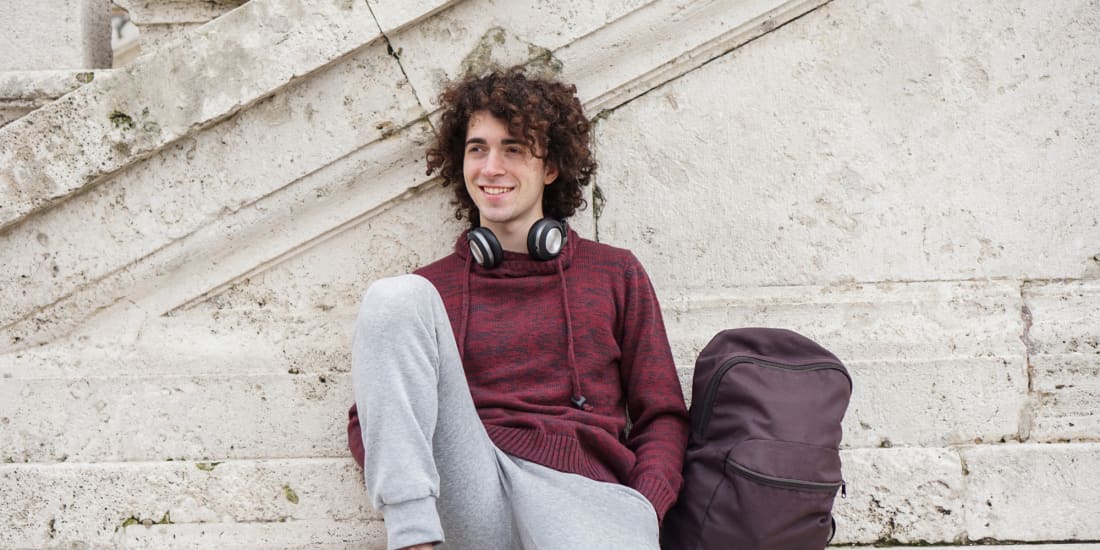Study Bachelor in Italy 2024
Study in Italy
Officially known as the Italian Republic, Italy lies in the southern most part of Europe and borders Austria, Switzerland, Slovenia and France. Sardinia and Sicily are two Mediterranean Islands considered part of the Italian Republic. Italy is home to two sovereign states--the Vatican City and San Marino, which are politically known as "enclaves" within the country of Italy.
One of the world's most economically developed countries, Italy is also a major tourist attraction among other European countries and enjoys the prosperity made possible by this type of industry. In addition to the fascinating city of Rome, Italy also attracts millions of visitors each year by providing access to such historically significant sites as the ruins of Pompeii, the Coliseum in Rome, the leaning Tower of Pisa and the Catacombs of San Callisto.
Change currency
Basic monthly living cost
Rent in a shared flat
408Share of utilities
66Internet subscription
28Local transportation
35
Sample lifestyle cost
Fast food combo
9Cinema ticket
9Pint of local beer
5
About Italy
Higher Education in Italy
Article 34 of the Constitution of Italy guarantees an individual's right to pursue a higher education
with a university or college.The Italian university system is highly specialized and very competitive.They have 42 state universities, six private universities, three technical schools, and twelve specialized universities.
Why Study in Italy?
A course of study in Italy would enrich someone
with their unique atmosphere and access to many of the finer things of life, including art, music, wine-making and many others.With their highly specialized course areas geared toward a specific field, you are bound to
get the educational background you need to carry your career goals a step further.
Colleges and Universities
Colleges and universities in Italy are influenced heavily by the arts and humanities culture.There is the Academy of Fine Arts in Venice, Cesare Pollini Conservatory of Music, and the Polytechnic University of Bari, which is focused more on technology and technical engineering skills.There are many more to choose from with a variety of course offerings in various fields.
Academic Year
The first semester typically starts in September/October and ends in Jan/Feb.The second term usually begins in February or January and goes through May or early June.
Tuition Fees and Length of Study
Tuition and fees vary depending upon the school you are attending.But you will find an affordable solution to meet your needs with so many schools to choose from.In general most courses cost €850 - €1,000 per year.
Bachelor degrees take around four years to complete, including the basic course requirements and extra curriculum requirements to complete the degree.The degrees are highly specialized and the courses
prepare one well for their chosen field.
International Students
There are many opportunities for international students to study in Italy. Students from abroad are welcome to explore the possibilities and see what would be to their liking. There are also student exchange programs, whereby international students may study under an exchange agreement, under the authorization of the European Community Socrates Erasmus programme. Other students may attend under the authorization of a bilateral agreement between an Italian university and a host school.
One of the key differences between studying in Italy and other countries is that most exams are oral.
There are many career and research opportunities available, upon completion of a degree from an Italian university. Law students may go on to pursue a career in a legal institution or practice as a lawyer. People in the humanities and arts may
use their talents in many areas, including many of the artistic productions so prevalent in Italy. Depending upon the specific area of study and the need, students who graduate from an Italian school will be ready to meet the demands of a changing society.
Student Visas
Students from abroad are welcome to come to Italy to study, but they are required to carry a student visa or passport and all the required documentation. In addition, the documentation may be required to be registered at the local police station. The most important thing about visas is to make sure you have the right type. Before entering your chosen school,
check on the school's website for more information about which type you need. Registration can be made at the nearest Italian embassy or consulate.
Useful Tips
Italy is a beautiful country which holds many wonderful and unique artistic finds. Education in Italy is unique and very focused. Visas are required but are fairly easy to obtain. People in Italy are very family-oriented and artistic-minded. Getting an education in Italy goes beyond the walls of the classroom and into the artistic world of the arts and culture. Studying in Italy is an experience you will never forget.
Visa Requirements
- Visa type C: Short-stay visa or travel visa valid for one or more entries and for a period not exceeding 90 days.
- Visa type D: Long-stay visa valid for more than 90 days.
What type of Visa do you need?
Visa name
Visa type C; Visa type D
Price and currency
USD 70
The fee for a student visa to Italy is typically around 50-70 USD. The fee may be subject to change.
Who can apply for the visa?
EU/EEA students can enter Italy with a valid passport or an ID card and are entitled to complete a degree in Italy without a visa for as long as they wish. These students must, however, register with the Questura (police station) within 8 days from their arrival, in order to obtain a residence permit.
Non-EU students are required to obtain a student visa prior to entering Italy. For study more than 90 days you will then need to apply for a residency card (permesso di soggiorno) at the local post office within the first 8 days of arrival in Italy. This along with your visa will allow you to stay in Italy for the duration of your studies. There is a fee associated with the residency card.
Citizens of some non-EU countries do not require a visa to stay and study in Italy for a period of up to 90 days.
You can find an overview of these countries here: https://www.immigrationworld.com/italy/how-to-apply-for-italy-student-visa/
Where can you make the application?
Italian embassy or consulate
You need to apply for your student visa at the Italian embassy or consulate in your country. You will also need to have an interview at the embassy or consulate.
How to make the application?
After you have received the letter of acceptance or letter of admission for your intended course of study, you can check your eligibility for obtaining an Italian student visa and then go ahead with the visa application procedure. You will need to present the following documentation:
- Entry visa application form; you can find it at
http://vistoperitalia.esteri.it/Moduli/it/Formulario Visto Nazionale.pdf - Recent passport-size photograph;
- Travel document valid for at least three months after visa;
- Enrollment or pre-enrollment in a university course;
- Proof that you have accommodation in Italy;
- Proof that you have financial support (at least € 448,07 per month for the academic year, a total of € 5824,91 per year);
- Adequate insurance coverage for medical treatment and hospitalization;
- Proof of the availability of the financial means needed for repatriation;
- Proof of adequate knowledge of Italian or English according to the language of the program;
- If the student is a minor, they must have the consent of expatriation signed by each of the parental authorities, or in their absence, by the legal guardian.
When should you apply?
You should apply for an Italian student visa at least three months before your planned arrival to Italy. The processing of your visa application may take between 1–3 weeks. You should schedule your visa interview around four to six weeks in advance.
The length of the student visa depends on the length of your course.
Processing time
3 Weeks
Work opportunities
If you are from the EU, you are allowed to work in Italy without the need for a work permit. Working hours should not exceed 20 hours a week during the semester. You can only work full time during the holidays between semesters.
International students from outside the EU will need to apply for a work permit at a local immigration office in Italy. First, you need to have a signed employment contract and show a copy at the immigration office.
Hours per week
20
Why do you need this type of visa?
Your visa application may be rejected if you are not able to show proof of the required funds, or if you provide incorrect or incomplete documents.
Institutions
- Roma Tre University - Department of Social Science
- Lorenzo de' Medici - The Italian International Institute
- Domus Academy
- LUMSA University
- Florence Institute of Design International
- The American University of Rome
- UeCampus
- MUNER - Motorvehicle University of Emilia Romagna
- The International University of Languages and Media (IULM)
- Rome City Institute


